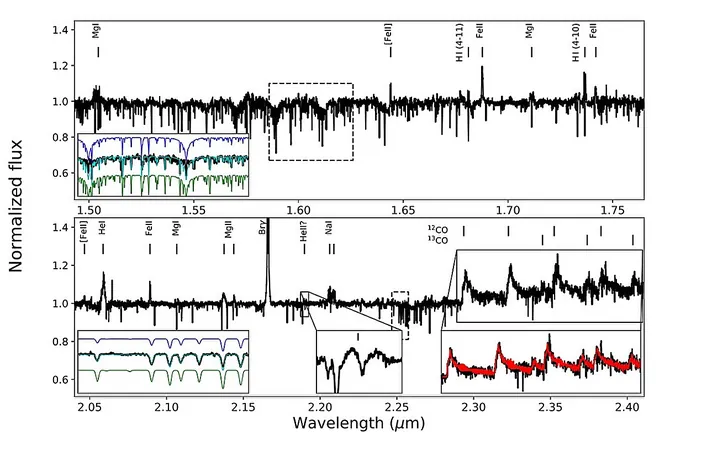
Groundbreaking Discovery: New Soil-Derived Antibiotic Could Revolutionize Fight Against Drug-Resistant Infections
2025-04-01
Author: Jia
In an exciting breakthrough for modern medicine, researchers have uncovered a novel class of antibiotics capable of combating drug-resistant bacteria. This groundbreaking molecule, named lariocidin, shows promise in treating infections that have become resistant to conventional medications.
Lariocidin operates by specifically targeting the ribosome within bacteria, a critical component for their cellular functions. This mechanism represents a significant advancement in antibiotic development. Gerry Wright, a professor at McMaster University in Canada and a co-author of the study, expressed optimism about the discovery: “This is a new molecule with a new mode of action. It’s a big leap forward for us.”
The research team unearthed lariocidin while cultivating bacteria from a backyard soil sample over a year-long period. Their findings were published in the prestigious journal *Nature*. The molecule is synthesized by a strain of bacteria called Paenibacillus, which was isolated from the sample.
In experiments, lariocidin was tested against E. coli, a notorious gut bacterium known for causing severe illnesses. Significantly, the compound demonstrated a broad spectrum of activity, proving effective against both Gram-positive and Gram-negative bacteria while exhibiting no toxicity to human cells. Rafael Cantón, a microbiology department head at Madrid's Ramón y Cajal Hospital, lauded the findings, stating that this innovative mechanism marks a "milestone in the fight against resistant bacteria."
Despite the promising results, experts emphasize that further research, including clinical trials, is essential to validate the efficacy of lariocidin in treating infections in humans.
A Rising Threat: Antimicrobial Resistance
The World Health Organization (WHO) has labeled antimicrobial resistance (AMR) as one of the most pressing public health challenges of our time. With bacteria evolving to outsmart long-established drugs, the effectiveness of existing treatments continues to diminish. Wright highlighted the urgency of the situation, noting, “Our old drugs are becoming less and less effective as bacteria become more and more resistant to them.”
The consequences of AMR are dire, with estimates suggesting that nearly 4.95 million deaths globally can be attributed to this phenomenon. In Europe and Central Asia alone, AMR is responsible for approximately 133,000 deaths annually. The financial impact is equally staggering, costing the European Union and Economic Area about €11.7 billion each year due to decreased productivity and increased healthcare costs.
As researchers like Wright and their teams make headway in antibiotic discovery, the hope is that compounds like lariocidin may represent the key to restoring our ability to treat bacterial infections effectively. The race is on to harness the power of nature to combat one of the most formidable threats in modern healthcare.

 Brasil (PT)
Brasil (PT)
 Canada (EN)
Canada (EN)
 Chile (ES)
Chile (ES)
 Česko (CS)
Česko (CS)
 대한민국 (KO)
대한민국 (KO)
 España (ES)
España (ES)
 France (FR)
France (FR)
 Hong Kong (EN)
Hong Kong (EN)
 Italia (IT)
Italia (IT)
 日本 (JA)
日本 (JA)
 Magyarország (HU)
Magyarország (HU)
 Norge (NO)
Norge (NO)
 Polska (PL)
Polska (PL)
 Schweiz (DE)
Schweiz (DE)
 Singapore (EN)
Singapore (EN)
 Sverige (SV)
Sverige (SV)
 Suomi (FI)
Suomi (FI)
 Türkiye (TR)
Türkiye (TR)
 الإمارات العربية المتحدة (AR)
الإمارات العربية المتحدة (AR)